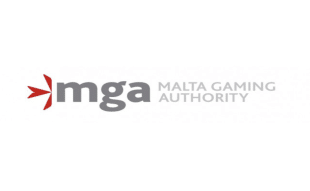Today marks an important milestone in the global effort to combat gambling addiction as Gordon Moody launches International Gambling Harms Awareness Day 2025. Scheduled for Wednesday, March 26, this worldwide initiative aims to illuminate the often-overlooked consequences of gambling addiction that extend far beyond financial losses.
The Growing Challenge of Gambling Harm
The timing of this awareness day couldn’t be more critical. Recent statistics reveal approximately 5 million Americans currently meet the criteria for compulsive gambling, with only about 8% ever seeking professional help. The problem extends globally, affecting millions of individuals across demographic boundaries.
A concerning trend has emerged following the 2018 Supreme Court decision that paved the way for sports betting legalization. Research published in JAMA Internal Medicine documents an alarming surge in gambling addiction help-seeking since this ruling. Total sports wagers have skyrocketed from $4.9 billion in 2017 to an astounding $121.1 billion in 2023, with 94% of these bets placed online.
“Sports betting has become deeply embedded in our culture,” notes a medical student cited in the research.
From relentless advertising to social media feeds and in-game commentary, sportsbooks are now everywhere. What was once a taboo activity, confined to the fringes of society, has been completely normalized.
This normalization has contributed to gambling’s increasingly hidden nature. Many individuals suffer in silence, hesitant to seek help due to stigma or uncertainty about available resources.
The #behindthebet Campaign: Revealing What’s at Stake
Gordon Moody’s awareness day centers around the theme “#behindthebet,” focusing on the emotional, financial, and social consequences that gambling addiction inflicts on individuals and their loved ones.
“International Gambling Harms Awareness Day is a global movement dedicated to raising awareness about the risks of gambling addiction and the harm it can cause to individuals, families, and communities,” explains Gordon Moody on their campaign website7.
The initiative aims to break down the stigma surrounding crypto gambling harm through sharing knowledge, starting conversations, and promoting understanding. By highlighting personal stories and expert insights, the campaign reveals how gambling addiction impacts mental health, relationships, and overall well-being.
This awareness effort aligns with the broader Problem Gambling Awareness Month (PGAM), held annually in March. Now in its 22nd year, the 2025 PGAM campaign carries the theme “Seeking Understanding,” which similarly focuses on fostering empathy and removing barriers to treatment.
Expanding Services to Meet Growing Needs
Gordon Moody’s awareness initiative coincides with their significant expansion of support services for those affected by gambling addiction. In late 2024, the organization opened a new flagship residential treatment center in Redditch, representing a major advancement in specialized care.
This state-of-the-art facility offers tailored residential treatment programs that combine evidence-based therapeutic interventions with holistic support approaches. The programs incorporate cognitive-behavioral therapy, group counseling, and individual support, while also addressing physical, emotional, and mental well-being.
“The goal is to treat the whole person, helping them not only break free from gambling-related harms but also rebuild their self-esteem, relationships, and personal and financial stability,” according to information about the center.
In addition to the residential facility, Gordon Moody launched an innovative Gambling Support First Aid training program in late 2024. This two-day course, available both online and face-to-face, equips adults with the skills to recognize and respond to signs of gambling-related harm in friends, family members, or colleagues.
Monica Shafaq, CEO of Gordon Moody, emphasized the importance of this training: “It’s important to us to address the stigma associated with seeking support for gambling-related harm. This requires individuals and communities to have a greater understanding and empathetic approach to the issue”.
Who’s Most Vulnerable to Gambling Harm?
While gambling problems can affect anyone regardless of background, research indicates certain demographics face higher risks. Men are more likely than women to develop problematic gambling behaviors, with Yale Medicine reporting that men outnumber women approximately 2:1 among those with gambling addictions.
A University of California study found that 2.9% of women were problem gamblers compared to 4.2% of men. The numbers among college students are particularly alarming, with 91% of college men and 84% of college women reporting gambling activity.
Young men appear especially vulnerable to developing gambling problems, a concerning trend as sports betting becomes increasingly accessible through mobile platforms and aggressive marketing strategies.
Getting Involved: How You Can Make a Difference
Gordon Moody invites individuals and organizations to participate in International Gambling Harms Awareness Day through various actions:
-
Download and share awareness materials: The organization provides downloadable assets for social media campaigns and community education efforts.
-
Join the conversation: Engage in discussions using campaign hashtags #behindthebet, #GamblingHarmsAwareness, and #GordonMoody to increase understanding and create a supportive environment.
-
Support fundraising efforts: Donations help Gordon Moody continue providing vital treatment services and programs for those affected by gambling harm.
By combining grassroots participation with institutional support, the campaign aims to create a society where open discussions about gambling harm become normalized, reducing the stigma that often prevents individuals from seeking help.
A Network of Support
For those affected by gambling problems, numerous support options exist beyond Gordon Moody’s specialized services. GamCare operates the National Gambling Helpline and provides structured treatment programs. Each year, approximately 40,000 people call their helpline, with 10,000 individuals undertaking treatment through GamCare and its partners.
GambleAware’s “Annual GB Treatment and Support Survey” found concerning rates of problem gambling, with 2.7% (1.4 million) adults experiencing gambling problems. These findings underscore the importance of continued research and expanded treatment options.
The impact of gambling harms extends well beyond the individual gambler. Family members, friends, and colleagues often experience significant emotional and financial strain when someone close to them develops a gambling problem. The collective societal cost of gambling addiction—including healthcare expenses, lost productivity, financial hardship, and related crime—remains substantial yet often underrecognized.
Looking Forward: The Path to Harm Reduction
As International Gambling Harms Awareness Day unfolds today, it represents just one component of a broader, ongoing effort to address gambling-related harm. The challenge remains significant—particularly as online gambling continues to expand and new forms of gambling-adjacent activities emerge in digital spaces.
However, the growing recognition of gambling addiction as a serious public health concern offers hope. Increased awareness, expanded treatment options, and policy reforms all contribute to a more comprehensive approach to harm reduction.
By participating in today’s awareness campaign and supporting organizations like Gordon Moody, individuals can help create an environment where those struggling with gambling problems feel empowered to seek help without fear of judgment or stigma.


